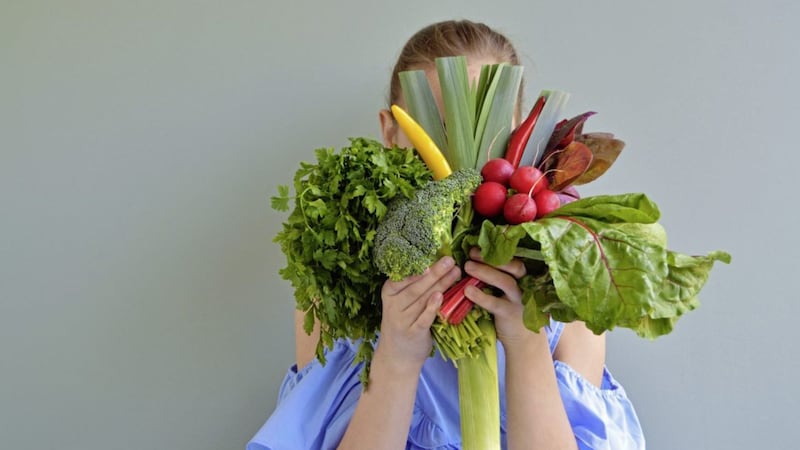FOR some it’s a lifestyle choice, for others an ethical one. But for whichever reason, the number of people who choose to be vegan has quadrupled in five years.
There are some 600,000 vegans in the UK – compared with 150,000 in 2014 – according to charity The Vegan Society. But is this way of eating (in which you avoid all animal products including meat, fish, eggs, honey and dairy) actually good for you?
The question was brought into sharp focus this week with news that a vegan diet may increase the risk of broken bones.
Researchers from Oxford and Bristol universities tracked 65,000 people aged over 17 and found vegans were more than twice as likely to break a hip than meat-eaters.
Overall, vegans were 43 per cent more likely to suffer a bone fracture – which the researchers believe was because the vegans consumed less calcium, a mineral that helps build bone and protein.
Dr Tammy Tong, one of the study team, says these findings highlight the risks of cutting all animal-based products from your diet.
"Unless they are actively supplementing or opting for fortified foods, it can be difficult for vegans to achieve a sufficient intake of calcium just from their diet," she says.
So can a vegan diet be healthier than a meat-based one? Or are vegans putting their long-term health at risk by cutting out certain dairy-based food groups? The fact is that the evidence for and against veganism is varied.
In October 2019, for example, there were claims a vegan diet can improve a man’s virility (based on a study of just three people, in a Netflix documentary).
A more scientific study, published in September 2019 in the BMJ, found that meat-free meals could raise the risk of stroke by 20 per cent. The researchers suggested lower levels of vitamin B12 (found in meat, fish and eggs) could play a role.
"We tend to confuse ethical choices with healthy choices when we make up our minds about good diets," says Rick Miller, an independent dietitian at King Edward VII’s Hospital, in London.
"The best diet is that which meets the needs of our biochemistry without lacking something essential."
We asked experts to look at a few common perceptions concerning veganism – with some surprising results . . .
:: Is plant-based food better for you?
Yes, almonds are better for you than a bucket of fried chicken. But just because something is vegan, doesn’t make it healthy.
In a study of more than 150 meat substitutes conducted by Queen Mary University of London last year, 28 per cent contained more than the recommended levels of salt. Mhairi Brown, a nutritionist who led the study, says: "We found that vegetarian burgers, for example, contained higher levels of salt than meat burgers on average."
Dairy alternatives can also contain hidden sweeteners and may lack the vitamins and other nutrients provided by cows’ milk.
:: Are fans of the diet slimmer?
A vegan diet may help keep weight down because it is thought to promote beneficial gut hormones that regulate appetite and blood sugar levels.
When US researchers analysed the hormone levels of 60 men who randomly ate either a meat-based meal with cheese or a vegan meal, the latter increased the release of beneficial hormones from the pancreas and gut, including those thought to play a role in regulating satiety (the feeling of fullness).
This effect could be linked to a high-fibre plant-based diet.
It may also be that meat products contain other types of chemicals or growth hormones that promote weight gain.
"This study adds to the mounting evidence that plant-based diets can help manage and prevent type 2 diabetes and obesity," says Dr Hana Kahleova, lead author of the study, which was published last year in the journal Nutrients.
:: How are teeth affected?
Dentists are seeing more cavities and gum disease in people who eat a plant-based diet, according to a study published in 2018 in the American Journal of Clinical Nutrition.
Dentist Dr Mervyn Druian says a deficiency of vitamin B12, found in animal products such as meat, eggs and milk, can lead to gum disease and tooth loss.
Studies have linked B12 deficiency to tooth loss in children and adults but the mechanism is unclear.
Arginine, an essential amino acid found chiefly in meat but also in smaller quantities in pumpkin seeds, peanuts, soybeans, chickpeas and lentils, seems to help prevent cavities and gum disease by breaking down dental plaque.
:: Should athletes go meat-free?
Plant-based diets have been championed by some elite athletes. The tennis legend Venus Williams has apparently followed a vegan diet since 2011, while Formula 1 champion Lewis Hamilton became a vegan in 2017 and said in an interview last year: "I’m healthier and happier than I’ve ever been."
A review of studies, published in the journal Nutrition in January 2019, concluded that plant-based diets could improve blood and oxygen flow to muscles and tissues, which "may present safety and performance advantages for endurance athletes".
But Rick Miller says vegan diets don’t have the edge over other diets, and that vegan athletes – particularly women – are more at risk from iron-deficiency anaemia because iron is lost in sweat. Anaemia means the body makes fewer oxygen-carrying red blood cells, affecting athletic performance.
:: Do vegans have stronger heart?
A meat-free diet can lower blood pressure, reducing the risk of heart disease, according to a study of nearly 6,000 people in The Netherlands published in 2018. It found that people who ate plant-derived protein rather than animal-derived protein showed a lower risk of developing coronary heart disease over 13 years.
Other research has found that people who eat more meat in their diet live shorter lives than those who prefer plant-based protein.
Rick Miller says: "Large amounts of dietary fibre in vegetarian and vegan diets may help to absorb some excess fat from the diet, which may lower some people’s risk of developing heart disease."
Yet vegans have twice as many sick days as their meat-eating colleagues in the UK, according to a 2019 study. It found vegans had almost five days off a year with flu, colds and minor ailments – well above the national average.
:: And a lower risk of cancer?
A vegetarian diet has been linked to a lower risk of colorectal cancer. Researchers in California looked at data from of more than 77,000 people and found that vegans had a 16 per cent reduced risk for all colorectal cancers compared with meat eaters. Vegetarians fared even better, with a 22 per cent lower risk.
However, a review in 2019 which analysed studies involving four million people found no evidence that eating beef, pork and lamb increased rates of heart disease, cancer, stroke or type 2 diabetes.
© Solo dmg media








